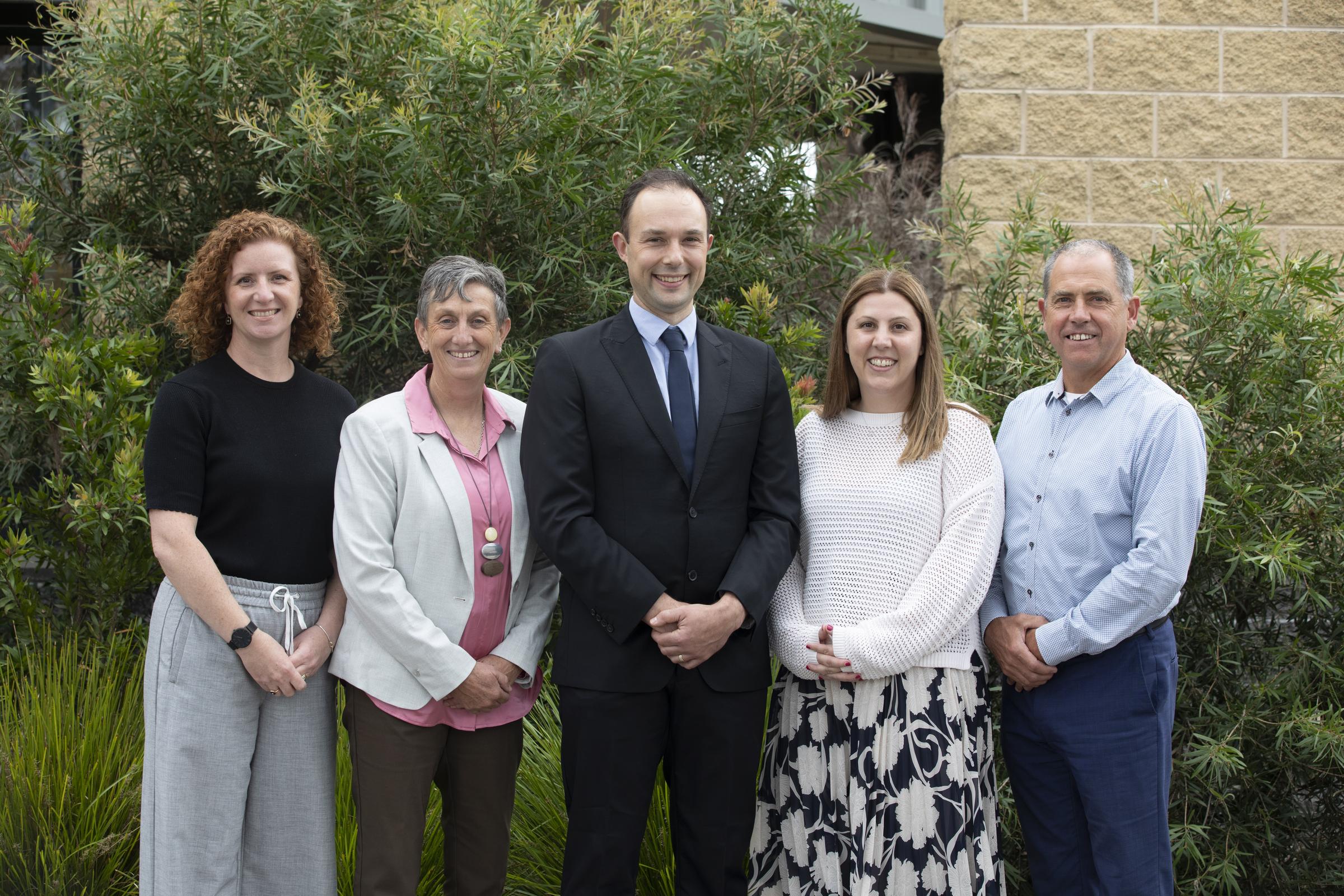Assistant Principals' Report
Leadership Team (pictured left to right): Gina Carroll, Belinda McGee, Glenn Morris, Elisha Sadikay and Gary Rule

Assistant Principals' Report
Leadership Team (pictured left to right): Gina Carroll, Belinda McGee, Glenn Morris, Elisha Sadikay and Gary Rule
One of the most challenging parts of everyday life is parenting. There is no part of your child’s life that doesn’t put your parenting skills to the test, and a teenager navigating secondary schooling can be a highlight.
As a parent, you know your child better than anyone else. Teachers want to get to know your child as well. When everybody is working together in the best interests of your child, they are more likely to reap academic and social benefits, like:
Not all parents can be involved in school as much as they’d like, but you can still let your child know that school is important to your family. Talking about school and being positive about the school and its staff sends the message that you value education and are interested in what’s happening for your child at school.
Talking with your child about the school day shows you’re interested in what’s going on in their life. This interest boosts his mental health, happiness and wellbeing. It can also have a very positive effect on your child’s behaviour and achievement. It shows your child that you value school and education, which encourages them to value it too.
Talking together about school also helps you get to know more about what’s expected of your child at school, how they learn and how they handle challenges. It can help you understand when they are feeling less interested in school or having problems.
When you’re in touch with your child’s feelings about school, you’re more likely to see problems before they get too big. This way you can work on overcoming challenges together and partner with school staff.
Talking about school issues – like school learning tasks, school expectations such as uniform or friendship problems – is also a great chance for you to express your family values about things like teamwork, respect for self and others, friendships, relationships and problem-solving.


Your child will probably be tired and hungry or thinking about other things when they first get home. It’s best to avoid asking him lots of questions straight away. You can just let your child know that you’re glad to see them and talk about non-school topics for a while. Saving questions about homework for later on can also take the pressure off!
Every afternoon or evening will be different. Even if your child usually likes to share their day with you, there will be days when they don’t want to talk. Sometimes it’s a matter of sensing moods and picking the right moment. Some days there might not be a right moment at all, and that’s OK.
Simple, positive and specific questions about parts of the day can get your child talking. For example:
As your child develops into the teenage years, they might want more privacy and time to themselves, which can make it harder to talk about school. But this isn’t the end of your warm, close relationship – it’s just that getting some distance from you is how your child becomes a more independent individual.
Rather than asking about your child’s day-to-day activities, you could try focusing on future plans. For example, "How’s the webpage you were designing in information technology coming along?" Or, "Are you still thinking you might want to get into web design after school?"
Even when you do have a good relationship with your child, they might not always tell you when their having a tough time or challenging school expectations. If you’re worried, you should consider contacting the school.
Talking with your teenage child about school might bring up unexpected surprises and difficult conversations. Try to stay calm – this is a great chance for you to be supportive and show your child that you value honesty.
More useful information can be found at:
Belinda McGee
Assistant Principal
As we start the second half of the school year, Transdev have attached a back to school update for term 3. In it you will find information about the importance of wet weather safety, touching on and off and details about a primary school poster competition that your younger family members may be interested in.